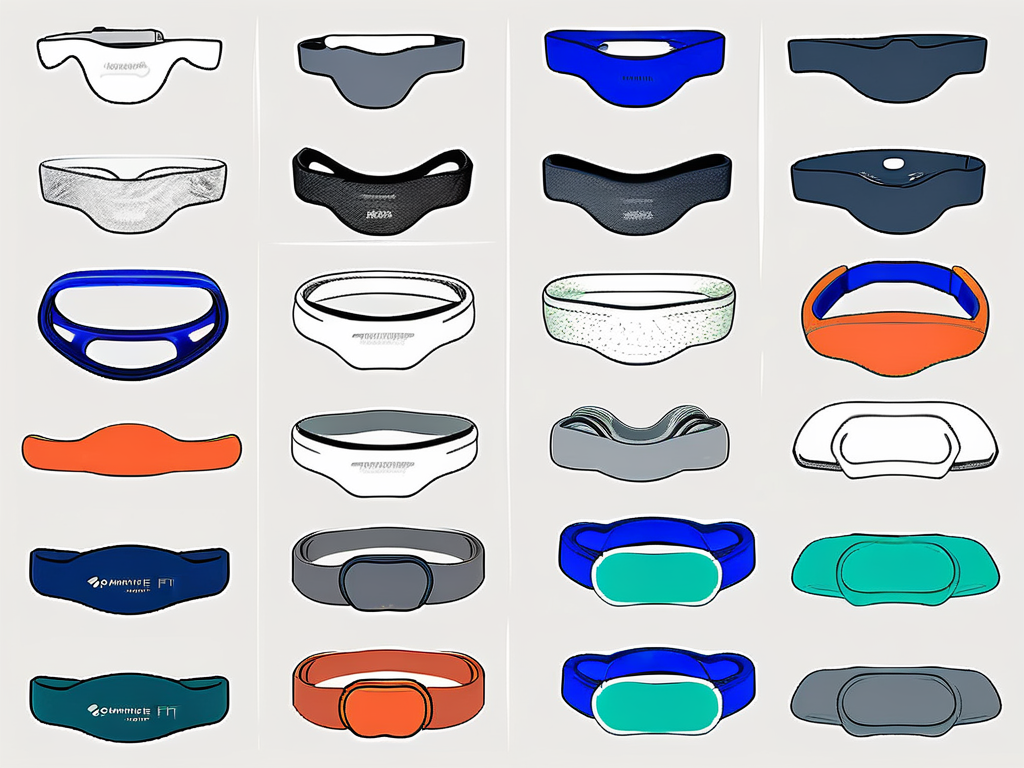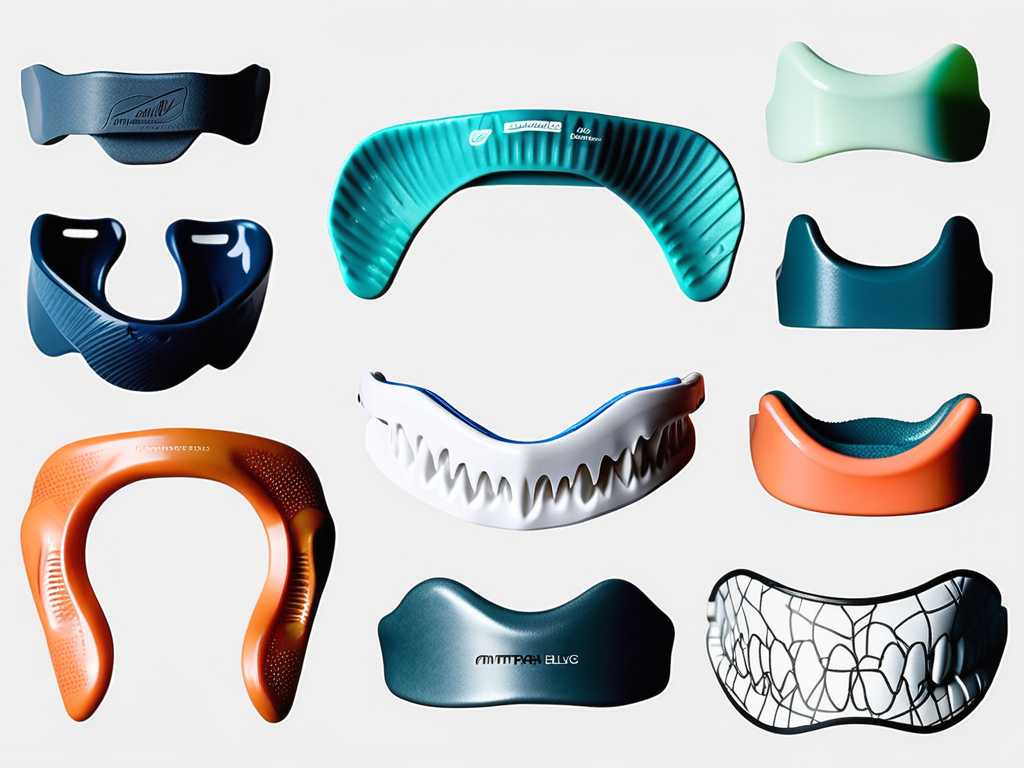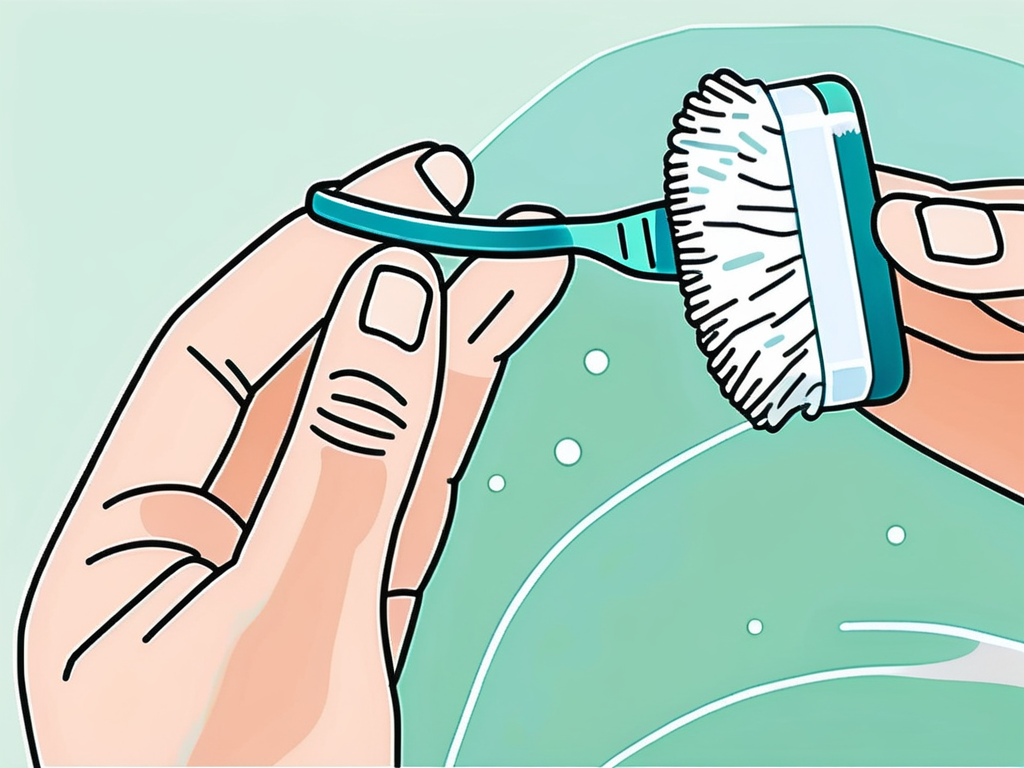Best Mouth Guard for Grinding Teeth: Top Picks and Reviews
Understanding Teeth Grinding: Causes and Effects
Teeth grinding, or bruxism, is a common condition that affects a significant portion of the population. Often occurring during sleep, this involuntary habit can have various causes, including stress, anxiety, and misaligned teeth. Understanding these causes is crucial in addressing the problem effectively.
From a physiological standpoint, bruxism is frequently linked to psychological factors. Individuals experiencing high levels of stress may unknowingly grind their teeth as a coping mechanism. Additionally, the alignment of one's bite plays a pivotal role; those with irregularities in their dental structure are at a heightened risk.
The Science Behind Teeth Grinding
The neurological aspect of bruxism involves the brain's response to stress and anxiety. When stressed, the body releases cortisol, which can trigger muscle tension, particularly in the jaw area. It is this tension that often leads to involuntary grinding during sleep. Scientific studies suggest that the grinding may act as a form of release for this built-up tension.
Moreover, certain sleep disorders, such as sleep apnea, have also been correlated with bruxism. The inconsistent breathing patterns can lead to periodic awakenings, causing the person to grind their teeth as a reflexive response. Understanding these underlying mechanisms is vital in identifying effective treatments. Other contributing factors may include lifestyle choices such as caffeine and alcohol consumption, both of which can exacerbate stress levels and disrupt sleep patterns, further intensifying the likelihood of grinding.
Health Implications of Teeth Grinding
The implications of chronic teeth grinding extend far beyond dental health. Prolonged bruxism can lead to a range of issues including tooth wear, fractures, and even tooth loss. Moreover, the excessive pressure exerted on the jaw can result in temporomandibular joint (TMJ) disorders, leading to pain and discomfort in the jaw area.
Additionally, frequent grinding can contribute to headaches and neck pain due to the muscle strain involved. In some cases, individuals may experience earaches or tinnitus, underscoring the importance of managing this condition effectively. The psychological toll of bruxism should not be overlooked either; individuals may find themselves feeling fatigued or irritable due to disrupted sleep quality, which can further exacerbate stress and anxiety levels. This cyclical relationship between bruxism and mental health highlights the need for a comprehensive approach to treatment, addressing both the physical and emotional aspects of the condition.
Importance of Mouth Guards for Teeth Grinding
Mouth guards serve as a proactive measure in preventing the detrimental effects associated with teeth grinding. By providing a cushioning effect, these devices help protect the teeth from the excessive forces exerted during grinding episodes, thereby preserving their structural integrity.
Furthermore, mouth guards create a barrier that can alleviate tension in the jaw muscles, reducing the likelihood of discomfort and pain. Their role extends beyond mere physical protection; they also contribute to better sleep quality by minimizing the interference that grinding can cause. In addition, many users find that wearing a mouth guard leads to a more relaxed jaw position, which can be particularly beneficial for those who experience bruxism due to stress or anxiety. This relaxation can promote overall well-being, allowing individuals to wake up feeling more refreshed and less fatigued.
Role of Mouth Guards in Preventing Teeth Damage
The primary function of a mouth guard is to shield the teeth from wear and damage associated with grinding. By acting as a cushion, these devices absorb the pressure generated during bruxism, significantly lowering the risk of tooth fractures and enamel erosion.
Regular use of a mouth guard can also prevent uneven wear patterns on teeth, which may lead to complex dental issues down the line, such as misalignments and the need for more extensive dental treatments. Investing in a quality mouth guard is, therefore, a critical step in maintaining long-term dental health. Additionally, mouth guards can be customized to fit an individual's dental structure, ensuring maximum comfort and effectiveness. This personalized fit not only enhances protection but also encourages consistent use, making it easier for individuals to incorporate mouth guards into their nightly routines.
How Mouth Guards Alleviate Grinding Symptoms
Mouth guards not only protect teeth but also serve to alleviate the symptoms associated with grinding. By providing comfort and reducing muscle strain in the jaw, they can lessen the frequency of headaches and jaw pain, allowing users to achieve a more restful night’s sleep.
Many people report a significant decrease in grinding intensity and frequency after consistently using a mouth guard. The psychological aspect is also notable; feeling secure in knowing that one is actively taking steps to address the problem may further reduce anxiety and stress-related triggers. Moreover, some mouth guards are designed with additional features, such as built-in bite alignment, which can further enhance their effectiveness in managing bruxism. This multifaceted approach not only addresses the physical symptoms of teeth grinding but also supports emotional well-being, creating a comprehensive strategy for those affected by this common condition.
Key Features to Consider When Buying a Mouth Guard
When selecting a mouth guard, several critical features must be taken into account to ensure optimum performance and comfort. Each individual's needs vary, so it's imperative to assess personal preferences when making a choice.

Material and Durability
The material of the mouth guard is a fundamental factor influencing its effectiveness and lifespan. High-quality materials, such as polyethylene or thermoplastic, are often preferred for their balance of flexibility and sturdiness. Durable materials will withstand the consistent forces exerted during grinding without quickly deteriorating.
For those with specific dental concerns, opting for custom-fitted guards from dental professionals may be advisable. These custom options are tailored precisely to the individual's dental structure, providing enhanced comfort and efficacy.
Comfort and Fit
The fit of a mouth guard is crucial for both compliance and effectiveness. A poorly fitting guard can lead to further discomfort and may even exacerbate grinding symptoms. When selecting a mouth guard, consider whether it is adjustable or comes in various sizes to accommodate different mouth dimensions.
Comfort is paramount; a well-fitted mouth guard should be barely noticeable during sleep. Users often prefer mouth guards that provide a snug yet comfortable fit, ensuring they do not interfere with breathing or swallowing while wearing them.
Ease of Cleaning and Maintenance
Considering the hygiene aspect, it is essential to choose a mouth guard that is easy to clean and maintain. Regular cleaning is necessary to prevent the buildup of bacteria and ensure that the guard remains in optimal condition. Look for mouth guards that can be easily rinsed or washed with soap and water.
Some mouth guards are also designed with antimicrobial properties to inhibit bacterial growth. This feature can provide an additional layer of protection, ensuring that users maintain healthy oral habits alongside their treatment for bruxism.
Reviewing the Top Mouth Guards for Teeth Grinding
With numerous options available, it is vital to narrow down the choices to the top-rated mouth guards that cater effectively to bruxism. Each product on the market brings its unique benefits, allowing users to select what best fits their specific needs.

Detailed Analysis of Top-Rated Mouth Guards
Brands such as Snore Guard or SOVA provide excellent choices for individuals suffering from teeth grinding. Snore Guard, for example, is custom-fitted and designed to withstand heavy grinding while maintaining a comfortable fit. On the other hand, SOVA offers a boil-and-bite design, allowing for a degree of customization without the need for a dental visit.
These products have garnered positive reviews due to their effectiveness in reducing grinding intensity and enhancing overall sleep quality. Detailed analyses often highlight user satisfaction in terms of comfort, durability, and effectiveness in mitigating bruxism symptoms.
Pros and Cons of Each Mouth Guard
-
Snore Guard:
- Pros: Durable material, custom fit, effective in reducing grinding.
- Cons: Higher cost, requires a dental visit for fitting.
-
SOVA:
- Pros: Affordable, easy to customize at home, good comfort level.
- Cons: May not fit as securely as custom options, less durable over time.
How to Properly Use and Care for Your Mouth Guard
Once you have selected the mouth guard that best suits your needs, understanding how to use and care for it is crucial to maximizing its effectiveness. Proper usage and maintenance will ensure the longevity of the mouth guard and its capabilities in preventing teeth grinding.

Steps to Using Your Mouth Guard Effectively
To effectively use your mouth guard, begin by ensuring your mouth is clean before inserting it at bedtime. This step helps in maintaining oral hygiene and prevents bacterial growth. Place the guard over your upper or lower teeth, depending on the type, ensuring a snug fit.
It is essential to get accustomed to the feeling of wearing a mouth guard. Some individuals might experience initial discomfort, but with time, this sensation typically diminishes. Be consistent in usage to enable your body to adapt more quickly.
Tips for Cleaning and Storing Your Mouth Guard
Cleaning your mouth guard should be part of your daily routine. After use, rinse it under cool water and gently scrub it with a toothbrush and mild soap to remove any residue. Avoid using hot water, as it can warp the material and compromise its fit.
Store the mouth guard in a ventilated container to allow it to air dry and to prevent moisture buildup, which can lead to bacterial growth. It’s advisable to keep it in a secure place, away from pets or children who might accidentally damage it.
By following these tips and utilizing the appropriate mouth guard, individuals suffering from bruxism can significantly reduce the impact of teeth grinding on their dental health and overall well-being. With a plethora of options available, careful consideration and informed decision-making are key to finding the best mouth guard for your needs.
Ready to take control of your bruxism and enjoy a restful night's sleep? Look no further than Remi's custom night guards, designed to provide the perfect fit for your unique dental needs. With Remi, you can experience up to 80% savings compared to traditional options, without sacrificing quality. Choose from a range of thicknesses and join The Remi Club for convenient, biannual replacements at a fraction of the cost. Made in the USA with dental-grade, BPA-free plastic, Remi's night guards are praised for their durability and effectiveness. Say goodbye to teeth grinding damage and hello to a brighter smile with Remi's teeth whitening kits. Don't wait any longer to protect your teeth and enhance your well-being. Shop Now and discover the ease and comfort of Remi's custom solutions.













